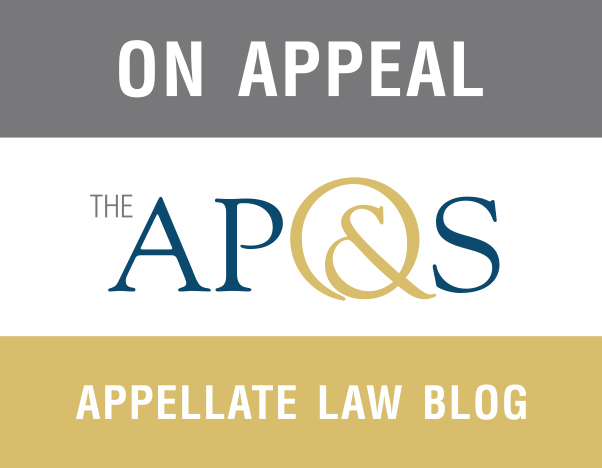In a case of first impression, the Rhode Island Supreme Court held that a doctor who was hired by a third party to provide an opinion about a patient based solely on his review of the patient’s records did not owe a duty of care to the patient. Consequently, the doctor cannot be held liable in a suit by the patient for any negligence occurring in connection with the doctor’s medical records review.
In Woodruff v. Gitlow, No. 2012-67-M.P., the plaintiff, a commercial pilot, surrendered his medical certificate at the request of the Federal Aviation Administration (“FAA”) after he had been involved in a motor vehicle accident. Id. at 1-2. Upon recovering from the accident, the plaintiff sought to have his medical certificate reinstated. Id. The FAA retained a psychiatrist as a medical consultant to review the plaintiff’s medical records and to make a recommendation about the plaintiff’s fitness to have his medical certificate reinstated. Id. at 2. The FAA provided the psychiatrist with portions of the plaintiff’s hospital, medical and driving records, as well as forms that the plaintiff had completed. Id. The psychiatrist reviewed the documents that had been provided to him and made his conclusions based solely on those documents. Id. at 2-3. Importantly, he never physically examined the plaintiff. Id. at 3.
After the psychiatrist completed his review, the FAA denied the plaintiff’s application to renew his medical certificate. Id. Consequently, the plaintiff filed suit against the psychiatrist alleging that his evaluation had been negligently performed. Id.
In considering the plaintiff’s claim, the Court first considered whether a traditional physician-patient relationship existed between the psychiatrist and the plaintiff. Id. at 7-8. Having concluded that there was no such relationship, the Court proceeded to examine whether the psychiatrist owed the plaintiff any duty of care. Id. at 8.
To prevail on a negligence claim, “‘a plaintiff must establish a legally cognizable duty owed by a defendant to a plaintiff, a breach of that duty, proximate causation between the conduct and the resulting injury, and the actual loss or damage.’” Id. (quoting Wyso v. Full Moon Tide, LLC, 78 A.3d 747, 750 (R.I. 2013)). Thus, the plaintiff could not pursue his negligence claim unless he could establish that the psychiatrist owed him a legally cognizable duty of care. Id.
Presented with this issue of first impression, the Rhode Island Supreme Court looked to case law from other jurisdictions for guidance. In doing so, the Court noted that the majority of courts, in the context of medical malpractice cases, have held that doctors who have been engaged to perform an independent medical examination do not owe a duty of care to the patient because there is no physician-patient relationship. Id. at 9.
Some courts have, however, held that a health care provider engaged to perform an independent medical examination owes a limited duty to the patient under common law negligence principles. For example, some courts have held that a doctor performing an independent medical examination owes a duty to avoid causing harm to the patient. Id. at 9-10. Other courts have held that a health care provider engaged to perform an independent medical examination has a duty of care to diagnose serious or life threatening medical condition or to disclose those conditions to the examinee. Id. at 10.
Viewing the facts of the case against this backdrop and against its own prior case law concerning the determination of a duty of care, the Supreme Court concluded it was important that the psychiatrist never conducted a physical examination of the plaintiff. Id. Thus, the case was distinguishable from the cases in which an independent medical examiner had failed to diagnose a serious or life threatening medical condition or caused some harm to the examinee during the course of the examination. Id. at 11.
Additionally, the Supreme Court was persuaded by the fact that imposing a duty of care on the psychiatrist would do little to prevent future harm to the plaintiff because the harm from which the plaintiff suffered was his medical condition itself, not any action or inaction on the part of the psychiatrist. Id. at 16. The Court also noted that there are numerous safeguards, including administrative review processes that help safeguard the process of obtaining independent medical records reviews. Id.
Finally, the Court concluded that exposing health care professionals who perform independent medical records reviews to liability would result in a chilling effect on their willingness to serve in that capacity. Id. at 17. Even worse, health care professionals concerned about liability resulting from their medical records reviews may be more inclined to produce a report more favorable to the party whose records are being reviewed. Id. Both consequences militated against finding that the psychiatrist owed a duty of care to the plaintiff.
In holding that the psychiatrist did not owe a duty of care to the plaintiff, the Supreme Court was cautious to limit its holding to the facts of the case before it. Id. Nevertheless, the decision is clear that the Court views medical records reviews and independent medical examinations differently. Thus, its decision in the context of a medical records review case is not determinative of the result it may reach in a case involving an independent medical examination.




